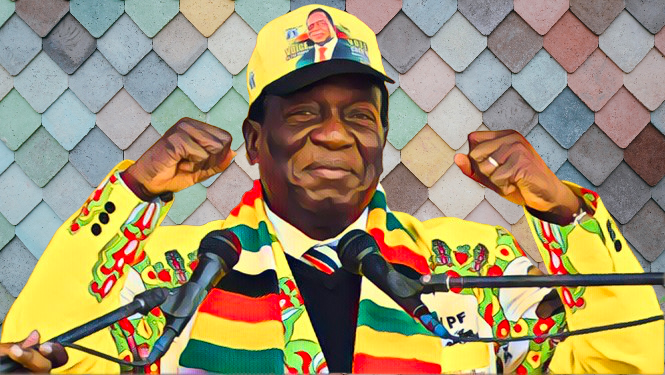Zimbabwe’s ruling party, Zanu PF, has launched a campaign to extend President Emmerson Mnangagwa’s stay in power beyond the constitutional limit of two terms. The party, which secured a two-thirds majority in parliament last month, is using the slogan “2030 vaMnangagwa vanenge vachipo” which loosely translates to “In 2030 Mnangagwa will still be in power”.
Constitutional Amendment on the Cards
According to Zimbabwe’s constitution, adopted in 2013, the president can only serve two five-year terms. Mnangagwa, who came to power in 2017 after a military coup that ousted former president Robert Mugabe, is currently in his second term, which is due to end in 2023.
However, Zanu PF officials and supporters have been calling for a constitutional amendment that would allow Mnangagwa to run for a third term, citing his achievements in stabilizing the economy, fighting corruption, and improving relations with the international community.
Some analysts say that the campaign is also motivated by factionalism within Zanu PF, as Mnangagwa’s deputy, Constantino Chiwenga, is believed to have ambitions to succeed him. Chiwenga, a former army general, was instrumental in the coup that brought Mnangagwa to power and reportedly had an agreement with him to take over after one term.
Opposition and Civil Society Cry Foul
The opposition and civil society groups have condemned the move to extend Mnangagwa’s rule, saying it is undemocratic and unconstitutional. They have accused Zanu PF of using its parliamentary majority to entrench its power and silence dissent.
The main opposition party, the Movement for Democratic Change Alliance (MDC-A), has vowed to challenge any attempt to amend the constitution in court and mobilize the public to resist it. The party’s spokesperson, Fadzayi Mahere, said that Zanu PF was trying to “steal the people’s mandate” and “reverse the gains of the liberation struggle”.
The Zimbabwe Human Rights Association (ZimRights), a civil society organization, said that the campaign was a “clear sign of dictatorship” and a “betrayal of the people’s aspirations”. The group urged Zimbabweans to defend their constitution and demand free and fair elections.
A Test for Zimbabwe’s Democracy
The campaign to extend Mnangagwa’s term is seen as a test for Zimbabwe’s democracy, which has been marred by decades of authoritarian rule, human rights violations, and economic decline under Mugabe. Many Zimbabweans had hoped that Mnangagwa would usher in a new era of reform and openness, but have been disappointed by his failure to deliver on his promises and his crackdown on dissent.
The international community, which had initially welcomed Mnangagwa’s rise to power and offered to re-engage with Zimbabwe, has also expressed concern over the deteriorating human rights situation and the lack of political and economic reforms. The United States, the European Union, and the United Kingdom have maintained sanctions on Zimbabwe, citing the lack of progress on democracy and human rights.
However, some observers say that there is still hope for Zimbabwe to overcome its challenges and achieve its potential if the government and the opposition can engage in a genuine dialogue and work together for the common good. They also call for more support from the regional and international partners to help Zimbabwe address its humanitarian and development needs.
Source: New Zimbabwe


